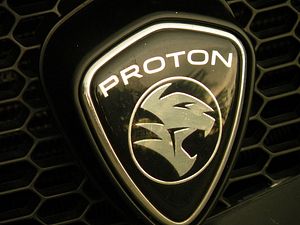It’s not news that 93-year-old, recently re-elected Malaysian Prime Minister Mahathir Mohamad is enthusiastic about driving and even making cars. As was true more than 30 years ago, during his first stint in power, car projects reflect the very core of his political ideology: Malay nationalism and Asian values.
More than three decades ago, impressed by Japan’s economic miracle, Mahathir decided to implement a “Look East Policy” instead of “looking west.” Hoping to emulate Japan, Mahathir was eager to prioritize heavy industry in national economic development. Partly due to his own fondness for cars and racing (he was instrumental in introducing Formula One into Malaysia), Mahathir proposed a Made-in-Malaysia car.
Proton, fully owned and strongly supported by the Malaysian government, was set up in the early 1980s to pioneer this industrial and automotive revolution. In Proton’s first decade, the government’s heavy intervention strategy proved to be effective as the company’s domestic market share reached a peak at 74 percent in 1993. Proton was said to symbolize Malaysia’s industrialization level.
Under Mahathir’s first premiership the national car project became not only an important “part of a state-led heavy industries program to rationalize the car industry, [and] promote industrialization through backward linkages,” as Jeff Tan wrote in his 2008 book Privatization in Malaysia: Regulation, Rent-Seeking and Policy Failure, but also a significant tool to “meet ethnic re-distributive objects.”
In Malaysia, there is an imbalance between the population of ethnic Chinese and the community’s share of the national economy — a situation which has touched off race riots. The 1969 riots led to the enforcement of specific policies prioritizing Malays. In order to pacify the indigenous Malay population, narrow the income gap and economic inequality between ethnic Malays and ethnic Chinese, the Malaysian government began to implement the so-called “New Economic Policy,” granting privileges to bumiputera companies. A bumiputera company is one in which 100 percent equity is owned by ethnic Malays, at least 51 percent of the board seats are filled by ethnic Malays, and at least 51 percent of the workforce is ethnic Malays. Although Proton is categorized as state-owned enterprise, it also created huge benefits for bumiputera communities; for example, only bumiputera suppliers could sell auto parts to Proton under its vendor system.
After 22 years as prime minister, Mahathir retired from politics in 2003, but he remained an adviser to Proton. After Proton was privatized in 2012, Mahathir became the company’s chairman from 2014 to 2016. However, Mahathir’s efforts did not help improve the company’s trajectory. By then it had come to be known as a failure of government over-protection. In 2012, almost half of the government’s stake was sold to DRB-Hicom, a conglomerate owned by Syed Mokhtar Al-Bukhary, who is an ethnic Malay groomed in the Mahathir era.
Privatization did not rejuvenate the company. In 2017, a foreign company, Chinese carmaker Zhejiang Geely Holding Group, bought a 49.9 percent stake in Proton Holdings. With Chinese capital flooding in, Proton couldn’t be the Malaysian “national car” anymore. As Mahathir put in a Facebook post in 2017, “They say Proton is my brainchild. Now the child of my brain has been sold. Yes. I am sad. I can cry. But the deed is done. Proton can no longer be national. No national car now. ”
Proton, upon being established in 1980s, has been carefully nurtured by Mahathir in accordance with his political beliefs — implementing hands-on state management like in East Asian countries and protecting Malay elements.
This year, Mahathir won a surprising victory in Malaysia’s 14th general election. He is once again prime minister. Shortly after being sworn in, reports surfaced that he is looking to revive his old dream of a national car, this time looking also to Southeast Asia for assistance.
At a conference in Tokyo in June, Mahathir said, “Our ambition is to start another national car, perhaps in partnership with other countries in the region.”
A month later, he proposed creating an “ASEAN car” with Indonesia — a proposal Mahathir first made back in 2015. After his visit to Indonesia, Mahathir said, “Back in 2015, we’d discussed to jointly produce a car made by Indonesia and Malaysia for Southeast Asian nations, but it had not been followed up. Now we are looking at reviving the project.”
Mahathir remains passionate about national car projects, despite years out of politics. Whether an new national car or ASEAN car, the drive continues to highlight Mahathir’s support of Malay nationalism and so-called Asian values in his second term.
Li Xirui is a research assistant at the China-ASEAN Research Institute at Guangxi University, PRC.
































